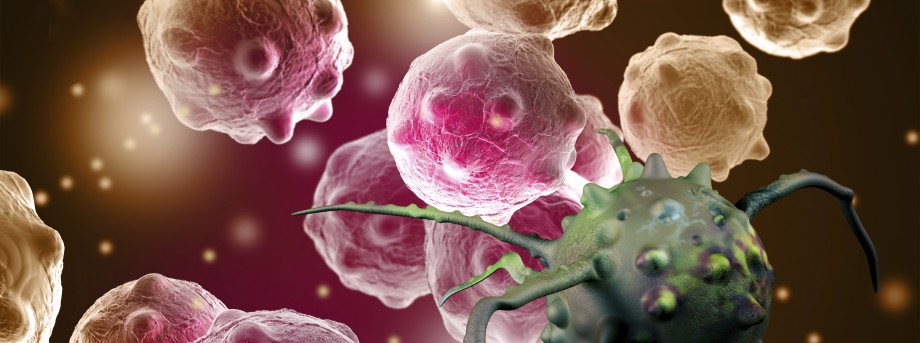The University of Nottingham
 Exchange online
Exchange online
Research Exchange
Blood vessel protein could be harnessed to treat prostate tumours

November 10 2014
Research involving Nottingham academics has shown that a signal protein that plays a crucial role in controlling the growth of blood vessels could be used to suppress tumours in prostate cancer.
The discovery by Dr Sebastian Oltean at Bristol University and Nottingham’s David Bates, Professor of Oncology in The University of Nottingham’s Cancer Biology Unit and academics at UWE Bristol, could be used to develop new drugs to improve the long-term management and prognosis for prostate cancer patients.
Professor Bates said: “This work opens up a new avenue for drug development for prostate cancer. This is a new target, and we believe we will be able to make drugs that hit this target in those patients that can benefit, with prostate cancer, and potentially other cancers too.”
The research, published in the academic cancer journal Oncogene, centres on the role in the body of the signal protein vascular endothelial growth factor (VEGF). VEGF comes in two forms — proangiogenic, which encourages the growth or blood vessels, and anti-angiogenic, which inhibits vascular growth.
The researchers have discovered that in prostate cancer the cancer cells produce proangiogenic VEGF to form the new blood vessels that are needed to carry vital nutrients and oxygen to tumours.
As a result, the academics have developed a compound that can switch the production of VEGF from the proangiogenic form to the anti-angiogenic form to block the formation of new blood vessels and cause the tumours to starve themselves, preventing the growth and spread of the cancer.
The researchers studied patients with prostate cancer and found that the expression of levels of proangiogenic VEGF varied across the group. They focused their work on patients who had a high expression of the protein and used cancer cells from bone metastases to study the mechanism of the VEGF in tumour formation.
They were able to demonstrate that a new chemical they called SPHINX could be used successfully to switch the forms of VEGF in mice in the laboratory and prevent tumour growth with very few side effects when given three times weekly by injections.
Having shown proof of concept, the next step will be for the Biotech company Exonate, a spin-out drug development company from The University of Nottingham, to develop a compound that recreates the effects in humans and to develop a drug that could be injected or taken orally in tablet form.
If successful, the new drug could be used as a long-term maintenance therapy to keep a patient’s prostate cancer in check and to prevent its growth and further spread to other organs in the body.
The study was funded by Prostate Cancer UK, the Biotechnology and Biological Sciences Research Council (BBSRC) and Richard Bright VEGF Research Trust.
Tags: anti-angiogenic, BBSRC, Biotechnology and Biological Sciences Research Council, Bristol University, Cancer Biology Unit, Dr Sebastian Oltean, new drugs, Oncogene, Oncology, proangiogenic, Professor David Bates, prognosis, prostate cancer, Prostate Cancer UK, research, Richard Bright VEGF Research Trust, School of Medicine, signal protein vascular endothelial growth factor
Leave a Reply
Other News

Top prize for quantum physicist
A University of Nottingham physicist has won a prestigious medal from the Institute of Physics for […]

Zero carbon HOUSE designed and built by students comes home
Design and construct a low cost, zero carbon, family starter home, transport it to Spain, build […]